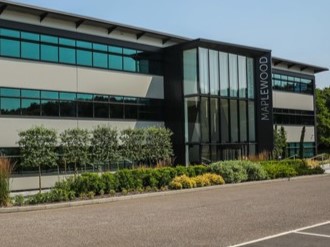 SaaS outfit AvePoint has updated, enhanced and continued investments in its channel business with the expansion of the AvePoint Certification Programme Partner Locator.
SaaS outfit AvePoint has updated, enhanced and continued investments in its channel business with the expansion of the AvePoint Certification Programme Partner Locator.
The outfit said that the move will help partners address their customers’ evolving digital collaboration security needs and drive their revenue. You can read the full press release here and below.
The company said that AvePoint is making it easier for its partners to grow their business by building on training and development opportunities through the AvePoint Certification Programme. Organisations can become certified in AvePoint technology and services, empowering partners to capture new business.
It has buffed up its training to focus on how partners can build services around multiple products, as requested at the company’s latest Partner Technical Advisory Council (PTAC).
The Partner Locator will be launched in 3 July to fuel new business for partners by directing AvePoint customers to partners like (MSPs) who can help deploy or build services around its technology.
AvePoint has invested in DevOps, helping to create SaaS solutions unique to end-customer industries and specific needs.
This level of co-creation, through accessing AvePoint APIs to build upon its technology, is another example of the company’s commitment to helping each partner drive revenue in ways that are specific to their business, the company says.
 The UK government is jolly pleased about ChatGPT creator OpenAI’s decision to to open its first office outside the United States in London.
The UK government is jolly pleased about ChatGPT creator OpenAI’s decision to to open its first office outside the United States in London. TD Synnex’s second-quarter numbers suffer from PC market decline.
TD Synnex’s second-quarter numbers suffer from PC market decline. TD Synnex CEO Rich Hume said: “Our unparalleled, end-to-end line card of products and services allowed us to realise growth in Advanced Solutions and high-growth technologies, as the industry continued to be impacted by post-pandemic declines in demand for PC ecosystem products.”
TD Synnex CEO Rich Hume said: “Our unparalleled, end-to-end line card of products and services allowed us to realise growth in Advanced Solutions and high-growth technologies, as the industry continued to be impacted by post-pandemic declines in demand for PC ecosystem products.” Cisco wants to buy the UK-based privately held broadband network monitoring company SamKnows.
Cisco wants to buy the UK-based privately held broadband network monitoring company SamKnows. New research has found that voice authentication systems are vulnerable to attacks from malicious AI.
New research has found that voice authentication systems are vulnerable to attacks from malicious AI. Integration platform-as-a-service outfit Celigo partnered with Bring IT to further expand its best-in-class automation technology into the Europe, Middle East and Africa (EMEA) and Latin American (LATAM) regions.
Integration platform-as-a-service outfit Celigo partnered with Bring IT to further expand its best-in-class automation technology into the Europe, Middle East and Africa (EMEA) and Latin American (LATAM) regions.
 Scalable Neural Processing Unit (NPU) semiconductor designer Expedera today announced the opening of its new European regional engineering development centre in Bath.
Scalable Neural Processing Unit (NPU) semiconductor designer Expedera today announced the opening of its new European regional engineering development centre in Bath.
 Security outfit Veracode launched its new Veracode Velocity Partner Programme in the EMEA region.
Security outfit Veracode launched its new Veracode Velocity Partner Programme in the EMEA region.
 Google has accused Microsoft of using its dominant position to trap customers into contracts within its Azure cloud server business.
Google has accused Microsoft of using its dominant position to trap customers into contracts within its Azure cloud server business.
 Payments outfit Checkout.com has launched a new product t to help merchants optimise acceptance rates and grow revenues.
Payments outfit Checkout.com has launched a new product t to help merchants optimise acceptance rates and grow revenues. Networking giant Cisco is looking to acquire its partner Accedian.
Networking giant Cisco is looking to acquire its partner Accedian. Customers are becoming less predictable, making existing models and approaches less effective. according to a new Twilio study.
Customers are becoming less predictable, making existing models and approaches less effective. according to a new Twilio study. Prime Minister Rishi Sunak is under pressure from Big Tech firms to apply a lengthy appeals process under the proposed Digital Markets, Competition, and Consumers (DMCC) Bill.
Prime Minister Rishi Sunak is under pressure from Big Tech firms to apply a lengthy appeals process under the proposed Digital Markets, Competition, and Consumers (DMCC) Bill. Daisy Corporate Services has completed its acquisition of cyber security service provider, ECSC Group.
Daisy Corporate Services has completed its acquisition of cyber security service provider, ECSC Group.




